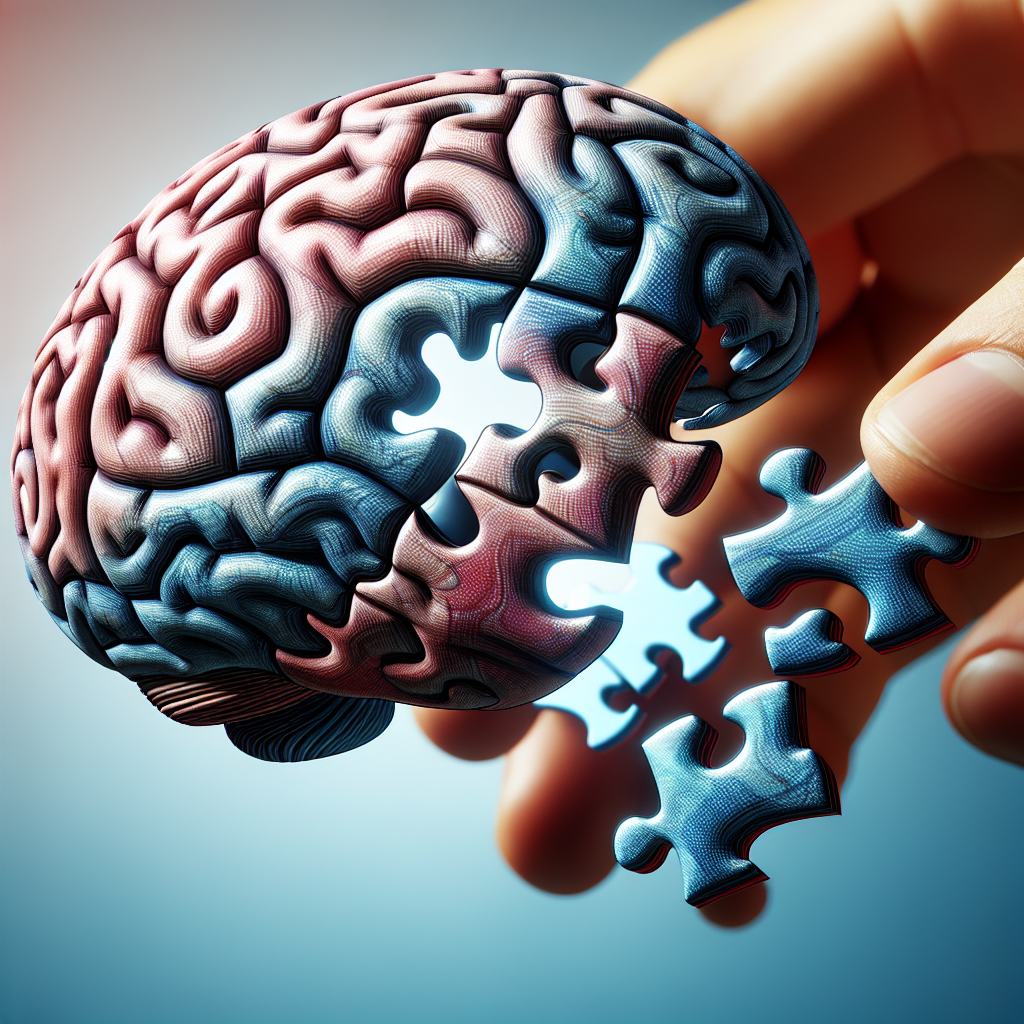In today’s fast-paced world, having a sharp memory and strong retention skills can be a valuable asset. Whether you’re a student trying to ace your exams or a professional looking to enhance your productivity, the ability to remember and retain information is crucial. Fortunately, there are several practical strategies you can implement to improve your memory and retention skills. By incorporating techniques such as chunking, spacing out your studying, and utilizing mnemonic devices, you’ll be well on your way to unlocking your brain’s full potential. So, get ready to sharpen your mind and enhance your memory with these effective tips and tricks.

- Understanding the Memory Process
- Techniques for Enhancing Memory
- Developing a Healthy Lifestyle for Better Memory
- Utilizing Technology for Memory Improvement
- Engaging in Mental Exercises
- Utilizing Memory Improvement Strategies in Daily Life
- Making Use of External Memory Aids
- Enhancing Memory and Retention through Mindfulness
- Understanding and Overcoming Memory Obstacles
- Seeking Professional Help for Memory Issues
Understanding the Memory Process
Memory is a fascinating aspect of human cognition that allows us to store and recall information. To better understand how memory works, it is important to recognize the three stages of memory: encoding, storage, and retrieval.
The Three Stages of Memory
Encoding
The first stage of memory is encoding, which involves the process of converting information into a form that can be stored and recalled later. During this stage, the brain receives sensory information and transforms it into a pattern of neural signals. Think of encoding as the process of taking a snapshot of information and preparing it for storage.
Storage
Once information has been encoded, it enters the storage stage. Storage refers to the retention of encoded information over time. Think of storage as a filing cabinet where memories are stored for future retrieval. The brain has different storage systems, such as short-term memory and long-term memory, each with its own capacity and duration.
Retrieval
The final stage of memory is retrieval, where stored information is brought back into consciousness. Retrieval is the process of accessing and recalling memories that have been previously stored in the brain. This can occur through recognition, where a person identifies previously encountered information, or through recall, where information is retrieved without any external cues.
Different Types of Memory
Memory is not a singular entity, but rather a complex system consisting of various types of memory. Some of the main types of memory include:
Sensory Memory
Sensory memory is the brief storage of sensory information, such as visual or auditory stimuli, that lasts only a few seconds. It is responsible for allowing us to retain a brief impression of our surroundings.
Short-Term Memory
Short-term memory, also known as working memory, is responsible for temporarily storing and manipulating information. It has a limited capacity and duration, typically holding around 7 plus or minus 2 items for a brief period of time.
Long-Term Memory
Long-term memory is the storage system for information that is retained over a longer period of time. It has an almost unlimited capacity and can store information for days, weeks, or even a lifetime.
Factors Affecting Memory
Several factors can influence our memory abilities. These factors include:
Age
As we age, our memory abilities may decline. Older individuals may experience difficulties with encoding and retrieval, leading to memory challenges. However, with proper techniques and strategies, memory can still be improved even in older age.
Health Conditions
Certain health conditions, such as Alzheimer’s disease or other forms of dementia, can significantly affect memory function. Additionally, mental health conditions such as depression or anxiety can impact memory capabilities.
Stress and Emotional State
High levels of stress or intense emotions can interfere with memory processes. Stress hormones can impair memory encoding and retrieval, making it harder to recall information during stressful situations. It is important to manage stress effectively for optimal memory functioning.
Techniques for Enhancing Memory
Enhancing memory is possible through various techniques and strategies. By incorporating these practices into your routine, you can improve your memory and retention skills.
Practice Effective Study Habits
One of the most important ways to enhance memory is through effective study habits. This includes creating a conducive learning environment, breaking study sessions into manageable chunks, and using active learning techniques such as summarizing information or teaching others.
Use Mnemonic Devices
Mnemonic devices are memory aids that help us remember information by associating it with something more easily recalled. Examples include creating acronyms, visualization techniques, or rhymes to remember lists or sequences.
Chunking Information
Chunking is a technique where you break down large amounts of information into smaller, more manageable chunks. By organizing information into meaningful groups or patterns, it becomes easier to remember and retrieve.
Visualize and Associate
Visualizing information is a powerful memory-enhancing technique. By creating mental images of the information you want to remember and associating it with something familiar, you can improve recall.
Create a Memory Palace
A memory palace, also known as the method of loci, is a technique that involves associating information with specific locations in a familiar place. By mentally walking through the palace and recalling the information associated with each location, you can enhance memory retrieval.
Developing a Healthy Lifestyle for Better Memory
In addition to specific memory-enhancing techniques, adopting a healthy lifestyle can greatly improve your memory and retention skills.
Get Enough Sleep
Getting sufficient sleep is crucial for optimal brain function. During sleep, the brain consolidates memories, strengthens neural connections, and removes unnecessary information. Aim for 7-9 hours of quality sleep each night to support memory consolidation.
Exercise Regularly
Regular physical exercise has been shown to have numerous benefits for brain health, including improved memory and cognitive function. Engaging in activities such as aerobic exercise, strength training, or even simple activities like walking can enhance memory.
Maintain a Balanced Diet
A healthy diet is essential for overall well-being, including brain health. Include foods rich in omega-3 fatty acids, antioxidants, and vitamins in your diet. Opt for whole grains, fruits, vegetables, lean proteins, and healthy fats to provide your brain with the nutrients it needs.
Stay Hydrated
Proper hydration is important for optimal brain function. Dehydration can negatively impact cognitive abilities, including memory. Ensure you drink enough water throughout the day to support your brain’s functioning.
Minimize Stress Levels
Chronic stress can impair memory and cognitive function. Practice stress management techniques, such as deep breathing, meditation, or engaging in enjoyable activities, to reduce stress levels and support better memory.
Utilizing Technology for Memory Improvement
With advancements in technology, there are numerous tools and resources available to enhance memory and retention skills.
Use Memory Apps and Games
There are various mobile apps and games specifically designed to improve memory and cognitive function. These apps often include memory games, puzzles, and challenges that can help exercise your brain and improve memory abilities.
Explore Virtual Reality and Augmented Reality
Virtual reality (VR) and augmented reality (AR) are immersive technologies that can stimulate the brain and improve memory. These technologies provide interactive experiences that engage multiple senses and create memorable learning opportunities.
Try Online Courses and E-Learning Platforms
Online courses and e-learning platforms offer a wide range of educational content that can enhance memory and retention. By engaging in structured learning activities and interactive modules, you can improve your memory while acquiring new knowledge and skills.

Engaging in Mental Exercises
Engaging in mental exercises is a great way to keep your brain active and enhance memory function.
Solve Puzzles and Brainteasers
Puzzles and brainteasers, such as crosswords, Sudoku, or riddles, challenge your brain and improve memory. These activities require problem-solving skills and can help sharpen your cognitive abilities.
Learn a New Skill or Language
Learning a new skill or language provides mental stimulation and helps create new neural connections. The process of acquiring new knowledge and practicing it regularly can improve memory and cognitive function.
Read Books and Engage in Intellectual Conversations
Reading books and engaging in intellectual conversations expose you to new ideas and perspectives. These activities stimulate memory and promote critical thinking, which can enhance your overall cognitive abilities.
Utilizing Memory Improvement Strategies in Daily Life
Memory improvement strategies can be applied to everyday life to maximize memory function.
Organize Information
Organizing information is essential for efficient memory storage and retrieval. Use organizational tools such as calendars, to-do lists, or categorization systems to structure and manage information effectively.
Use Visual Cues and Reminders
Visual cues and reminders can help trigger memory recall. Place post-it notes in strategic locations or use visual reminders, such as associating an object with a specific task, to enhance memory retrieval.
Practice Regularly
Consistency is key when it comes to memory improvement. Practice memory-enhancing techniques regularly to reinforce neural connections and strengthen memory capabilities.
Teach Others
Teaching others requires you to recall and articulate information, which enhances memory retrieval. Share your knowledge with others through tutoring, presentations, or informal discussions to reinforce your own memory and deepen your understanding.
Take Breaks
Taking regular breaks during studying or mental tasks can improve memory and concentration. Resting allows the brain to recharge and consolidate information, leading to better memory retention.

Making Use of External Memory Aids
External memory aids can assist in improving memory and retention skills by providing additional support and reminders.
Keep a Journal or Planner
A journal or planner helps you record important information and commitments. Writing things down can enhance memory encoding, and referring back to your journal or planner serves as a reliable memory aid.
Utilize Sticky Notes
Sticky notes are a simple but effective memory aid. Use them to jot down important reminders, errands, or deadlines and place them in visible locations to prompt memory retrieval.
Use Voice Recording Apps
Voice recording apps on smartphones or other devices allow you to capture verbal reminders or record important information. Listening to recorded messages can help refresh your memory and reinforce learning.
Create a Mind Map
Mind mapping is a visual representation of ideas, concepts, or information. By creating a mind map, you can organize and link related information, improving your understanding and memory retention.
Enhancing Memory and Retention through Mindfulness
Practicing mindfulness can positively impact memory and retention skills by fostering a focused and present state of mind.
Practice Meditation
Meditation is a powerful tool for improving memory and concentration. Regular meditation practice can enhance brain function and contribute to better memory abilities.
Engage in Mindful Learning
When learning new information, practice mindful learning by staying fully present and attentive. Avoid distractions and immerse yourself in the learning process to improve memory encoding and retention.
Be Present in Daily Activities
Being present in your daily activities, whether it’s eating a meal or engaging in a conversation, can improve memory by focusing your attention and strengthening memory connections.
Understanding and Overcoming Memory Obstacles
Memory obstacles can hinder our ability to recall information effectively. Recognizing and addressing these obstacles can help improve memory performance.
Forgetfulness and Absentmindedness
Forgetting or experiencing absentmindedness is common and can be due to various factors such as distractions, stress, or information overload. Being mindful and implementing memory-enhancing techniques can help overcome these challenges.
Tips for Overcoming Memory Blocks
Memory blocks, where you temporarily cannot recall information, can be frustrating. To overcome memory blocks, try techniques such as relaxation, visualization, or retrieving related information to jog your memory.
Dealing with Memory Loss and Aging
Memory loss can be a natural part of the aging process. However, certain lifestyle choices, such as maintaining social connections, engaging in cognitive activities, and managing overall health, can help slow down memory decline. If memory loss becomes significant or interferes with daily life, seeking professional help is recommended.
Seeking Professional Help for Memory Issues
In some cases, memory issues may require professional intervention. Consulting with a doctor or specialist can provide guidance and support for memory improvement.
When to Consult a Doctor or Specialist
If memory issues significantly impact daily functioning, it is advisable to consult a doctor or specialist. Memory concerns that persist or worsen over time, interfere with work or relationships, or are accompanied by other concerning symptoms should be addressed by a healthcare professional.
Therapies and Treatments for Memory Improvement
Several therapies and treatments are available to improve memory and cognitive function. These may include cognitive behavioral therapy, memory training programs, medication, or other interventions tailored to individual needs.
Support Groups and Memory Enhancement Programs
Support groups and memory enhancement programs can offer valuable resources and support for individuals experiencing memory challenges. These groups provide opportunities to learn from others, share experiences, and receive guidance from professionals in memory improvement.







